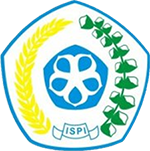Penerapan Model PBL Berbasis PPT Berbantuan Soal Cerita untuk Meningkatkan Minat dan Hasil Belajar Siswa
DOI:
https://doi.org/10.23917/jptp.v1i1.979Keywords:
PBL, Interest in Learning, Math Learning ResultsAbstract
ThisClassroom Action Research (CAR) aims to increase students' interest and learning outcomes in mathematics at SMK Bhakti Praja Margasari by applying problem-based learning (PBL) techniques. This research uses problem-based learning about story questions that other researchers have rarely done before. This research was conducted by adapting the Kemmis and McTaggart model into four stages: planning, implementation, observation, and consideration. A total of 32 students of class XAKL 1 SMK Bhakti Praja Margasai were used as the subjects of this study. Three tools were used to collect data: a questionnaire, an observation sheet, and a test. Learning outcomes data were analyzed quantitatively, while interest and practice data were analyzed qualitatively. The analysis showed that the students' interest in mathematics and their learning outcomes increased from the initial state. At the end of the second cycle, the PBL learning method met the objectives/ criteria for success. This means that 75% of students have reached the KKM. Students' interest in learning also meets the goals/criteria for indicators of success. This means that 78.13% of students are interested in learning in the "very high" category and 18.75% of students are interested in learning in the "high" category. Some conclusions from this CAR are: First, after a two-action cycle, the PBL method was proven to increase interest in learning and learning outcomes for students of class X AKLI 1 SMK Bhakti Praja Margasari. Second, the growth of student interest in learning is appreciated by the active role of students through the use of PBL. Third, presenting mathematical problems through narrative questions that are close to the context of students' daily lives, thus facilitating understanding of abstract mathematical concepts and increasing not only student interest but also learning outcomes. Fourth, the success of PBL implementation is highly dependent on the consistency of the teacher acting as a facilitator. The results of this study provide empirical evidence about the importance of planning, monitoring, and improving CAR-based learning.
Downloads
References
Abidin, Y. (2014). Desain Sistem Pembelajaran dalam Konteks Kurikulum 2013. Bandung: PT Refika Aditama.
Al-Tabany, Trianto Ibnu Badar. (2014). Mendesain Model Pembelajaran Inovatif, Progresif, dan Kontekstual. Jakarta: Prenadamedia Group
Anazifa, R. D. dan Djukri. (2017). Project-Based Learning and Problem-Based Learning: Are They Effective to Improve Student’s Thinking Skills? Jurnal Pendidikan IPA Indonesia, 6(2), 346-355. doi: 10.15294/jpii.v6i2.11100
Arends, R. (2012). Learning to Teach. New York: McGrawHill Education
Baharuddin, I. (2014). Efektivitas Penggunaan Media Video Tutorial Sebagai Pendukung Pembelajaran Matematika Terhadap Minat Dan Hasil Belajar Peserta Didik SMA Negeri 1 Bajo Kabupaten Luwu Sulawesi Selatan. Jurnal Nalar Pendidikan, 2 (2), 144-151
Barta, J., & Shockey, T. (2006). The Mathematical Ways Of An Aboriginal People: The Northern Ute. Journal of Mathematics and Culture, 1(1), 79–89.
Djidu, H. dan Jailani, J. (2018). Developing Problem Based Calculus Learning Model. Jurnal Kependidikan, 2 (1), 68-84 .doi: 0.21831/jk.v2i1.12689
Fikriyah, M., Indrawati, dan A. A. Gani. (2015) . Model Pembelajaran Berbasis Proyek (Project Based Learning) Disertai Media Audio-Visual dalam Pembelajaran Fisika di SMAN 4 Jember. Jurnal Pembelajaran Fisika, 4(2), 181-186
Gunantra, G., Suarjana, I., M., Riastini, P., N. (2014). Penerapan Model Pembelajaran Problem Based Learning Untuk Meningkatkan Kemampuan Pemecahan Masalah Matematika Siswa Kelas V. Mimbar PGSD Undiksha, 2 (1), DOI: http://dx.doi.org/10.23887/jjpgsd.v2i1.2058
Jailani, Sugiman, dan Alpino, E. (2017). Implementing The Problem-Based Learning In Order to Improve The Students’ HOTS And Characters. Jurnal Riset Pendidikan Matematika, 4(2), 247. doi: 10.21831/jrpm.v4i2.17674
Kemmis, S., & McTaggart, R. (1992). The action research planner (3rd ed.). Geelong: Deakin University Press.
Klassen, S., Klassen, C.F. (2014). The Role of Interest in Learning Science through Stories. Interchange 45, 133–151, https://doi.org/10.1007/s10780-014-9224-4
Munirah. (2018). Prinsip-prinsip belajar dan Pembelajaran (Perhatian dan Motivasi, Keaktifan, Keterlibatan Langsung, Pengulangan, Tantangan dan Perbedaan Individu. AULADUNA: Jurnal Pendidikan Dasar Indonesia. 5 (1), 116-125, DOI: https://doi.org/10.24252/auladuna.v5i1a10.2018
Ningrum. (2017). Pengaruh Penggunaan Metode Berbasis Pemecahan Masalah (Problem Solving) Terhadap Hasil Belajar Ekonomi Siswa Kelas X Semester Genap MAN 1 Metro Tahun Pelajaran 2016/2017. PROMOSI: Jurnal Program Studi Pendidikan Ekonomi, 5 (2), 145-151.doi: http://dx.doi.org/10.24127/ja.v5i2.1224
Radiansyah, I. (2017). Penerapan Model Pembelajaran Problem Based Learning (Pbl) Untuk Meningkatkan Hasil Belajar Siswa Pada Subtema Perubahan Rupa Bumi (Penelitian Tindakan kelas di kelas III semester II SD YKPPK Bandung) (Doctoral dissertation, FKIP Unpas)
Retnawati, dkk. (2018). Teachers’ Knowledge About Higher-Order Thinking Skills and Its Learning Strategy. Problems of Education in the 21st Century, 76 (2), 215-230. doi: 10.33225/pec/18.76.215
Sukariasih, dkk. (2019). Improving the Learning Outcomes Of Knowledge and Inquiry Skill Domain on Third Grade Students Of Smp Negeri 14 Kendari Through the Guided Inquiry Learning Model Assisted by Science Kit. Geosfera Indonesia, 4(2), 175. doi: 10.19184/geosi.v4i2.10097
Sukmadinata, Nana Syaodih. (2009). Metode Penelitian Pendidikan. Bandung: Remaja Rosdakarya
Susanti, G. dan Rustam, A. (2018). The Effectiveness of Learning Models Realistic Mathematics Education and Problem Based Learning Toward Mathematical Reasoning Skills at Students of Junior High School. Journal of Mathematics Education, 3(1), 33-39. doi: 10.31327/jomedu.v3i1.534
Trisnowali, A. (2017). Pengaruh Motivasi Berprestasi, Minat Belajar Matematika, Dan Sikap Belajar Matematika Terhadap Hasil Belajar Matematika Pada Siswa SMAN 2 Watampone. MAPAN: Jurnal Matematika dan Pembelajaran, 5 (2), 259-278, DOI: https://doi.org/10.24252/mapan.v5n2a8
Downloads
Submitted
Published
Issue
Section
License
Copyright (c) 2022 Jurnal Penelitian Tindakan Pendidikan

This work is licensed under a Creative Commons Attribution 4.0 International License.







